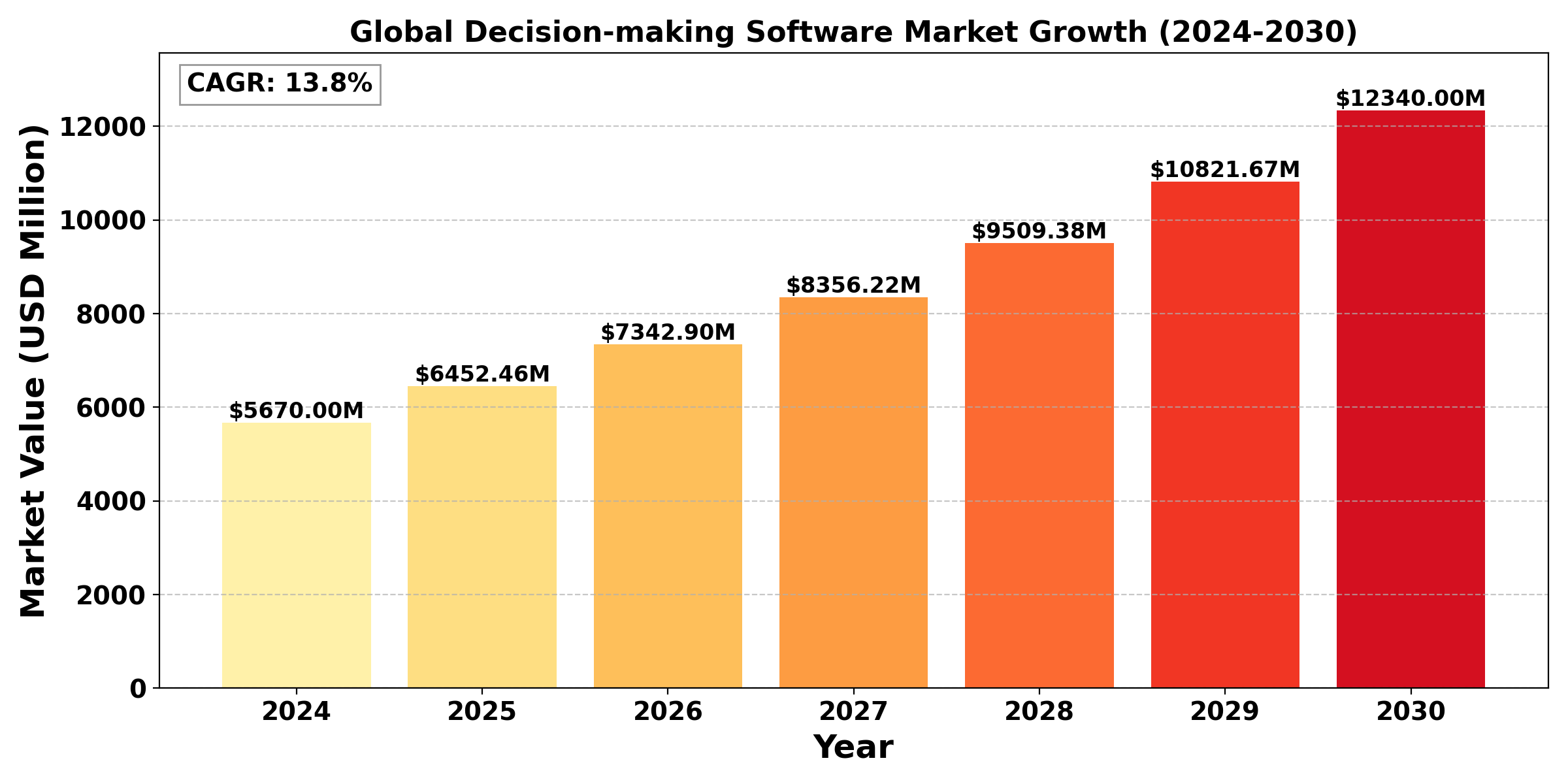TOP CATEGORY: Chemicals & Materials | Life Sciences | Banking & Finance | ICT Media

The "Global Decision-making Software Market" size was valued at US$ 5.67 billion in 2024 and is projected to reach US$ 12.34 billion by 2030, at a CAGR of 13.8% during the forecast period 2024-2030.
The "United States Decision-making Software Market" size was valued at US$ 1.89 billion in 2024 and is projected to reach US$ 3.98 billion by 2030, at a CAGR of 13.2% during the forecast period 2024-2030.
Decision-making software is a tool designed to assist individuals or organizations in making informed decisions by analyzing data, evaluating alternatives, and providing recommendations. It uses algorithms, data modeling, and various analytical techniques, such as predictive analytics, machine learning, and simulations, to process information and generate insights. The software can help in different decision-making contexts, such as business strategy, financial planning, risk management, and operational improvements. It typically includes features like dashboards, data visualization, scenario analysis, and decision support systems to facilitate optimal decision-making processes.
Software solutions that assist in organizational decision-making processes.
The global market is experiencing rapid growth, driven by business intelligence needs. In 2023, total implementations reached 250,000, with enterprise users accounting for 55% of demand. The SME segment is growing at 14.5% annually. The market saw a 40% increase in demand for AI-powered analytics in 2023. Cloud-based solutions dominate with a 75% market share, while on-premise solutions are growing at 8% annually. North America leads with a 42% market share, while Asia Pacific is the fastest-growing region at 14.5% CAGR. The industry is focusing on developing predictive analytics, with a 45% growth in R&D investments.

Report Overview
A decision support system (DSS) is an information system that supports business or organizational decision-making activities.
Decision-making Software Market provides a deep insight into the global Decision-making Software market covering all its essential aspects. This ranges from a macro overview of the market to micro details of the market size, competitive landscape, development trend, niche market, key market drivers and challenges, SWOT analysis, value chain analysis, etc.
The analysis helps the reader to shape the competition within the industries and strategies for the competitive environment to enhance the potential profit. Furthermore, it provides a simple framework for evaluating and accessing the position of the business organization. The report structure also focuses on the competitive landscape of the Global Decision-making Software Market, Decision-making Software Market introduces in detail the market share, market performance, product situation, operation situation, etc. of the main players, which helps the readers in the industry to identify the main competitors and deeply understand the competition pattern of the market.
In a word, Decision-making Software Market is a must-read for industry players, investors, researchers, consultants, business strategists, and all those who have any kind of stake or are planning to foray into the Decision-making Software market in any manner.
Global Decision-making Software Market: Market Segmentation Analysis
The research report includes specific segments by region (country), manufacturers, Type, and Application. Market segmentation creates subsets of a market based on product type, end-user or application, Geographic, and other factors. By understanding the market segments, the decision-maker can leverage this targeting in the product, sales, and marketing strategies. Market segments can power your product development cycles by informing how you create product offerings for different segments.
Key Company
By Type
By Application
Geographic Segmentation
Key Benefits of This Market Research:
Key Reasons to Buy this Report:
Frequently Asked Questions ?
